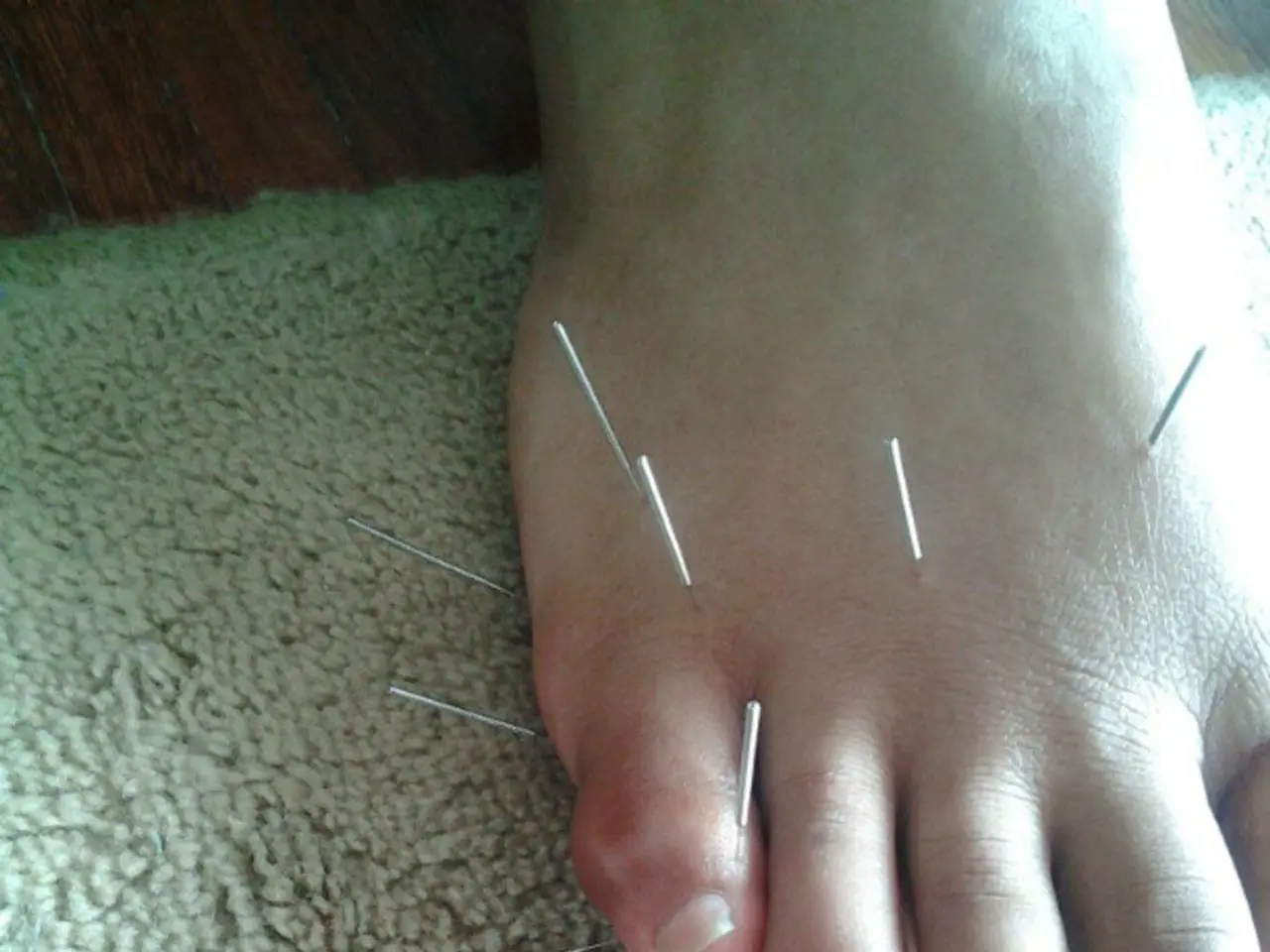Recognizing Testicular Cancer: 5 Red Flags and Common Questions Explored
In the early stages, testicular cancer may present with symptoms such as a painless lump or swelling in the testicle, scrotal heaviness, or a dull ache in the groin or lower abdomen. However, when the disease progresses and metastasizes, a wider range of symptoms may emerge.
Metastatic testicular cancer can involve musculoskeletal pain, respiratory complaints like cough and shortness of breath, urinary symptoms, and signs related to lymph node enlargement or metastases in distant organs such as the lungs and bones.
Musculoskeletal pain can be a sign of the cancer spreading to bones, while pain from enlarged lymph nodes compressing adjacent structures is also a possibility. Respiratory symptoms may occur due to metastases in the lungs, causing symptoms such as cough or shortness of breath.
Urinary symptoms, though less common, can occur if the cancer spreads to or compresses urinary tract structures, resulting in frequent urination, urgency, dysuria (painful urination), or hematuria (blood in urine).
Enlarged lymph nodes, particularly in the retroperitoneal area (behind the abdomen), can cause abdominal or back pain. Surgery such as retroperitoneal lymph node dissection (RPLND) may be necessary when nodes are enlarged or contain cancer.
Chest findings may reveal pulmonary nodules from metastases, and a biopsy can confirm germ cell tumor origin from the testis.
It's important to note that some individuals may not experience any symptoms at all, making regular self-examinations crucial. Doctors recommend that males perform monthly self-examinations to detect any changes early.
If any symptoms or changes are noticed, it's essential to consult a doctor promptly. Early recognition is vital as symptoms can vary based on the sites of spread. When testicular cancer is caught in the very early stage, the outlook is favorable.
Testicular cancer affects one or both of the testes, the male sex glands that sit in a pouch of loose skin called the scrotum. Approximately half of people with testicular cancer experience some form of pain, either dull or sudden.
In rare cases, testicular cancer can cause breast growth or soreness in men. It's also worth noting that enlargement or swelling of a testicle may affect one side and is unusual if it involves both sides.
Some testicular cancers can lead to signs of early puberty in boys, such as a deepening voice and the appearance of facial hair.
When testicular cancer spreads to other parts of the body, people may not experience symptoms right away. This underscores the importance of regular follow-up with blood tumor markers and imaging to detect recurrence or spread early.







